
When we started growing our own food, we wanted to achieve several things, wonderful flavours, long preserving time and crops that didn't require us to constantly spend money on seeds. If someone is looking for a perfect example of a self-sufficient crop that is wildly underappreciated, it has to be the humble shallot. When we grow shallots, we plant one and get 8 to 10 back. We save the biggest and the best, replant in another bed and the circle repeats. The bulbs that we use keep far longer than any onion variety that we have ever tried. If we harvest in the Autumn and store them cool, dark and dry, they will last well into the following Summer. We find the flavour of shallots is much more mellow than onions and they work brilliantly in stir fries and many oriental dishes.
As many uses as there are for shallots, a really first-rate pickled onion has to rank amongst the best (pickled onions aren't really onions, they're normally shallots). Pickled onions evoke memories of Hugh's longgone grandfather at Christmas who loved a supper of strong cheddar, crackers and homemade pickled onions. For over a quarter of a century we have been growing shallots and making pickled onions and are now really proud of our recipe. We think it makes an incredible pickled onion, crisp, fragrant and full of subtle flavours. Now is the time to make them whether you harvest your own shallots or buy them in the shops. They will be perfect by Christmas.
PREPARING YOUR SHALLOTS.
When we preserve, we tend to preserve a LOT of them, it's simply more time efficient for us, so this recipe calls for 5 kilos of pickled onions. Whilst that may sound a huge amount, they last for several years and indeed improve for keeping! However, if 5 kilos seems a daunting amount it's easy enough to scale the recipe back to make just a kilo.
This story is from the {{IssueName}} edition of {{MagazineName}}.
Start your 7-day Magzter GOLD free trial to access thousands of curated premium stories, and 9,000+ magazines and newspapers.
Already a subscriber ? Sign In
This story is from the {{IssueName}} edition of {{MagazineName}}.
Start your 7-day Magzter GOLD free trial to access thousands of curated premium stories, and 9,000+ magazines and newspapers.
Already a subscriber? Sign In
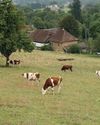
How to Buy a Smallholding in France- Long-time smallholder Lorraine Turnbull looks at the practicalities of moving to rural France
Aspiring smallholders are continually thwarted by the prices of smallholdings and property with land located within the UK. Even the humblest croft in Scotland comes with a substantial price tag and conditions which would make even an adventurous wannabee consider carefully. But all is not lost. For those willing to take the adventure of a lifetime, there is always Europe, and one of the most popular places is France.

Meet the Bournemouth goats and their supporters
These capricious animals are hard workers preserving the natural habitat
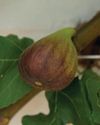
Still warm enough to sit outside with a Pizza
Henrietta Balcon uses fresh figs to create an unusual dish at Harvest time
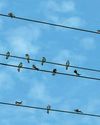
Goodbye to the birds of spring and summer
If you look and listen you might be able to see them preparing to leave says The RSPB
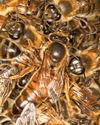
Get ready for the colder weather in the warmth of late summer
Claire Waring advises on doing the best to make sure your colonies survive until next spring
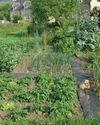
Preparing the Veg Patch for Winter
Lee Senior says, a well-run plot can excitingly continue to produce good quality, tasty, fresh food for much of winter
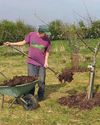
Time to prepare to plant your orchard
Wade Muggleton, smallholder and author of The Orchard Book, shares his practical experience so you can create your own fruit collection
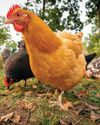
Choosing feed for the autumn
As autumn approaches, Joanna Palmer, nutritionist at the Smallholder Range, offers advice on choosing the right feed to support your adult birds through their annual moult and ensure your young birds grow and finish well at this time of the year.
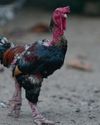
Vet advice from an experienced poultry vet
Reflecting on how much the humble hen has helped people world wide plus advice on stopping the scourge of red mite

Give your hens some support
Paul Donovan looks at the right and wrong ways of handling birds